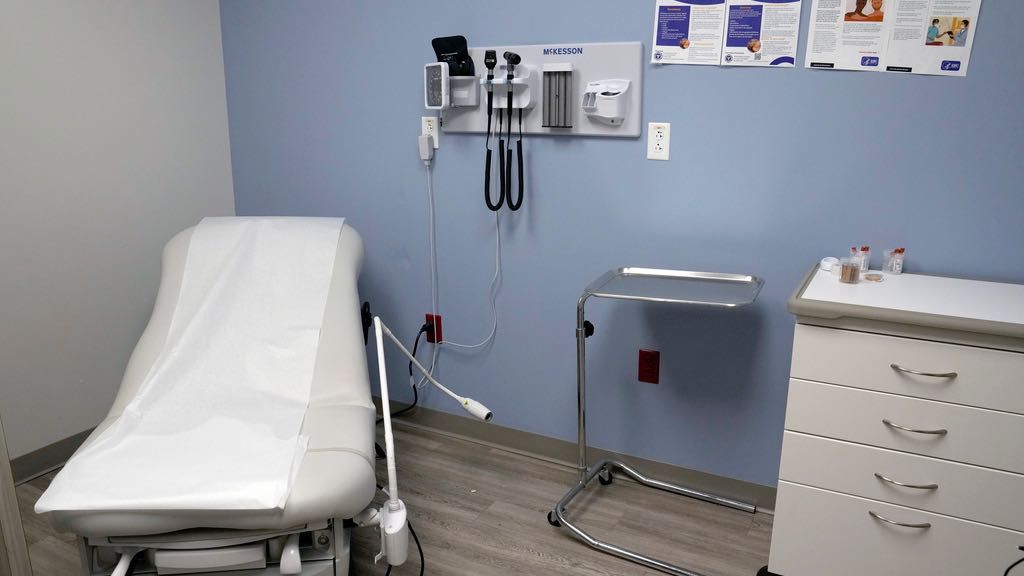The Impact of Texas’ Abortion Ban on Obstetricians and Gynecologists
AUSTIN, Texas — The landscape of reproductive healthcare in Texas has undergone a seismic shift following the state’s near-total ban on abortions. A recent survey has revealed that an overwhelming 71% of obstetricians and gynecologists (OB/GYNs) in Texas report that this ban has negatively impacted their medical practice. This statistic raises significant concerns about the future of women’s healthcare in the state, particularly in light of the complexities surrounding abortion laws and their implications for medical professionals.
New Rules and Their Limitations
In response to the evolving legal landscape, the Texas Medical Board adopted new rules this year aimed at clarifying the state’s abortion laws. One of the most notable changes is the protection for doctors who perform abortions in cases of ectopic pregnancies, which are life-threatening conditions where a fertilized egg implants outside the uterus. While this move was intended to alleviate some of the fears surrounding legal repercussions, many doctors argue that it falls short of addressing the broader issues at play.
Dr. Todd Ivey, a Houston-based OB/GYN, is among those who feel the weight of these restrictions. He emphasizes that while larger medical institutions may have the resources to navigate these legal waters, smaller, rural providers often lack the necessary support. This disparity raises critical questions about access to care, particularly for women in underserved areas.
Survey Insights and Concerns
The survey conducted by Manatt Health, which included responses from nearly 500 members of the American College of Obstetricians and Gynecologists, highlights a troubling trend: 60% of respondents expressed fear of legal repercussions for practicing evidence-based medicine. This fear can lead to a chilling effect on the provision of comprehensive care, as physicians may hesitate to offer necessary treatments that could be misconstrued as violations of the law.
Alex Morin from Manatt Health asserts that the survey results are representative of the state, reflecting the genuine concerns of many practitioners. However, the findings have not gone without criticism. Some opponents of the survey point out that it excluded members of the American Association of Pro-Life OB/GYNs, suggesting that this omission skews the results and presents an incomplete picture of the situation.
Diverging Perspectives
Amy O’Donnell from Texas Alliance for Life argues that the survey paints an exaggerated picture of a healthcare crisis. She contends that the assertion of a shortage of OB/GYNs is misleading, especially given that residency spots in the state are being filled. However, this perspective overlooks the national trend of declining applications to residency programs in states with strict abortion laws, which could have long-term implications for the availability of healthcare providers.
Moreover, nearly half of Texas counties already lack OB/GYN providers, exacerbating the issue of access to care. Dr. Ivey raises alarms about the potential consequences for women’s health, questioning whether patients will be able to receive essential services such as Pap smears and breast cancer screenings. The concern is not just about abortion access but about the overall quality of gynecologic and obstetric care available to women in Texas.
The Human Element
For many OB/GYNs like Dr. Ivey, the decision to remain in Texas is driven by a commitment to their patients. He emphasizes the importance of providing quality, evidence-based care, stating, “The women of Texas deserve good quality, evidence-based care in obstetrics and gynecology.” This sentiment reflects a deep-seated dedication to patient welfare, even in the face of challenging legal and professional landscapes.
As the debate over abortion laws continues to unfold, the implications for healthcare providers and their patients remain profound. The ongoing discussions surrounding the survey findings and the responses from various stakeholders highlight the complexities of navigating reproductive healthcare in a state with stringent abortion regulations.
For those interested in exploring the full findings of the survey, it is available online through Manatt Health.
